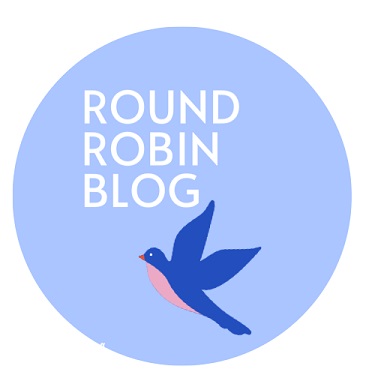It’s my first authors’ Round Robin of the year, and this month our topic is…

Using Goal, Motivation and Conflict to add tension to your story
All stories are about people, because human beings love to hear stories about other human beings. At their heart, the most engrossing stories are about a character who wants to do something (their goal), who has a very strong reason for wanting to do this something (their motive), but who is faced with serious obstacles in their way (the conflict).
Maybe this seems a simple way of summing up sometimes very complicated novels, but even classic literature has come out of this very simple premise.
Here’s how goal, motivation and conflict work, and how to use them for the all-important tension in your story.

What is your character’s goal?
A character’s goal is quite simply the thing that character wants in the opening. Most readers have never heard of the ‘rules’ of goal, motivation, character…but which character is going to engage a reader more – a character who is passively waiting for something to happen, or a character who is actively trying to achieve something? It’s the latter that readers will be interested in and who they’ll get behind.
Every single story you’ve ever read, from quite good to brilliant, has a character with a goal.

Here are some examples:
- I’m halfway through Sophie Kinsella’s Can You Keep a Secret?, published in 2003. In the opening, the heroine is desperate to get a promotion at work.
- I just finished reading the brilliant Flemington, by Violet Jacob, published in 1911 (available on Project Gutenberg). In the opening, the hero wants to bring down the Jacobites in 18th-century Scotland.
- In The Odyssey, Odysseus wants to get home after the Trojan Wars.
- Little Red Riding Hood wants to take some food to her grandma.
- Hamlet wants to avenge his father’s death.
Sometimes the goal isn’t obvious at the start – for example, Jane Eyre wants to be herself and to be treated as an equal with others. Her single, consistent goal becomes very clear as the story advances.
Whether a grand plan or a humble one, all of these characters have something they want to achieve, or something they want to get hold of, and if the character is engaging enough, readers will want to know whether they’re going to achieve their goal.
Which leads to…
What’s your character’s motivation?
A character with a goal is a starting point, but ultimately a goal on its own is unsatisfying. Why does the character want the thing he/she wants? The tension in the novel is increased dramatically if the character has a very strong motive for wanting ‘the thing’ – and it’s surprising how often love is at the heart of characters’ motives.

- In Can You Keep a Secret?, Emma wants a promotion to make her loving parents happy
- In Flemington, Archie is fighting the Jacobites because the aunt he loves is violently against the cause
- Odysseus wants to return home to the wife he loves
- Little Red Riding Hood loves her grandma
- Hamlet loved his father
- Jane Eyre is an unloved orphan. All she has is herself, and it’s herself she has to fight for
Give your character a goal, and give them a solid and believable motive, and readers will be right behind them.
Where is the conflict?
Without conflict, there would be no story. A little girl who successfully delivers a basket of food to her grandma isn’t particularly interesting, and neither is a woman who wants promotion and gets it.

- In Can You Keep a Secret?, Emma’s parents love her and want the best for her. I haven’t finished the novel yet, but I’m hoping she’ll realise they aren’t letting her be true to herself
- In Flemington, Archie forms a deep emotional bond with a Jacobite. The conflict with his love for this enemy and his love for his aunt makes for a gripping, emotional read
- Hamlet’s conflict comes from within, including his conscience and his lack of resolve
- Jane Eyre falls in love with Rochester, who wants to place her in a position where she won’t be his equal, and she won’t be true to herself
The above are all examples of ‘internal’ conflict – that is, the conflict comes from within the character’s themselves, involving internal goals or beliefs.
Red Riding Hood and Ulysses are victims of external conflict – that is, the conflict comes from outside their characters in the form of the wolf and all the disasters that hinder Ulysses’ journey.
In a romance, internal conflict is absolutely key to the story. What is it about the two main characters’ goals/beliefs/motivation that is keeping them apart for the whole of the novel?
When I’m editing, I find the three elements I most often suggest reworking in a story are :
- The main character appears rather passive. Suggestion: give them a clear, concrete goal that they need to work towards throughout the entire story
- There is a lack of focus. Suggestion: make sure the main character doesn’t drift aimlessly from goal to goal, and that they have a solid and believable motive for pursuing one single clear goal
- There is a lack of tension. Suggestion: make sure there is a clear opposing force in the way of the character achieving their goal – and try to think of as many ways as possible to have that character come up against this opposition.
*
Goal, Motivation and Conflict are the key to an engaging story. It may sound overly simple, but if you write these three elements – your character’s goal (what they want), a strong motive (why they want it) and a very strong reason for what’s in their way (the conflict) – on a piece of paper and keep that next to your keyboard, you’ll have a story that will keep readers engrossed from start to finish.
I hope you’ve enjoyed another thought-provoking Round Robin. If you want to see what the other authors write on this topic, please click on the links below!
Dr. Bob Rich https://wp.me/p3Xihq-37G
Anne Stenhouse http://annestenhousenovelist.wordpress.com
Victoria Chatham http://www.victoriachatham.com
Connie Vines http://mizging.blogspot.com/
Diane Bator https://escapewithawriter.wordpress.com/
Skye Taylor http://www.skye-writer.com/blogging_by_the_sea


Leave a Reply